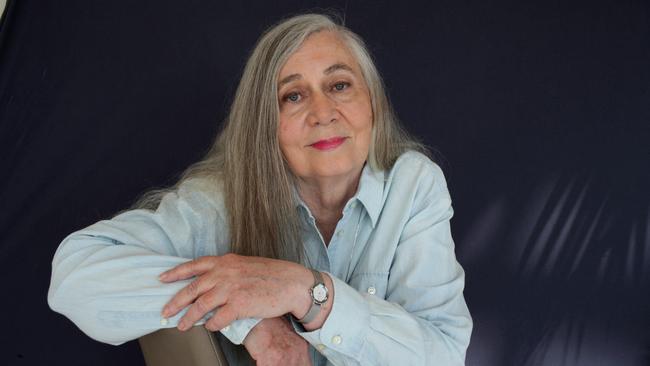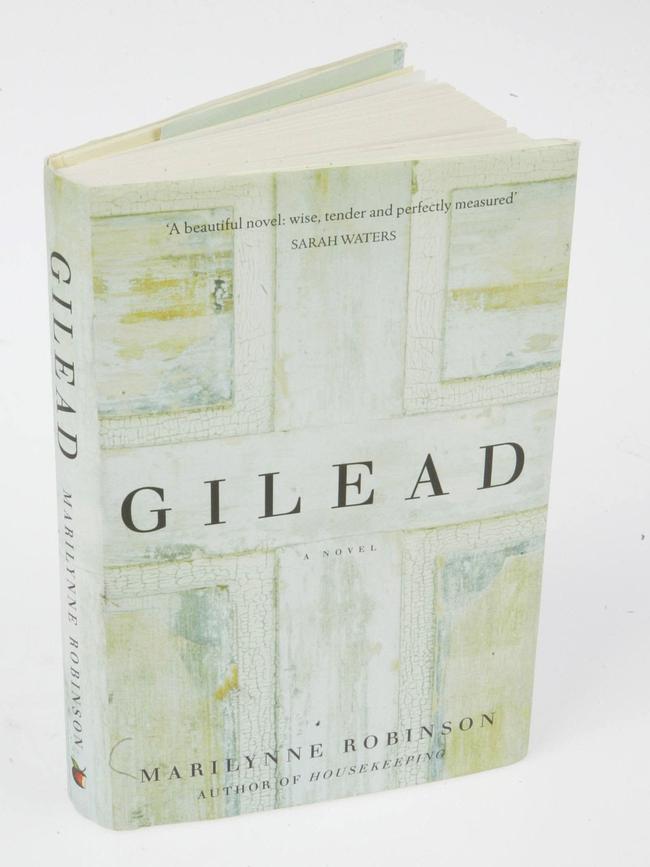
Robinson demonstrates the continuity between the God of the Old Testament and the New Testament. In one sense, Robinson is telling us what we already know. God doesn’t change. We need look no further than Jesus for an evaluation of the Hebrew scriptures. They are always on his lips throughout the New Testament.
Let me tell you a little about Robinson. She’s an American essayist and academic who has taught literature, the OT, and much else. She’s also, in my view, the greatest Christian novelist of the 21st century. It’s impossible, though, to contain her in any category. In 2004 Robinson published Gilead, which won the Pulitzer Prize, an astonishing outcome, given its subject. Gilead, perhaps the best novel I’ve read, defies summary or description. It’s a fictional letter a 76-year-old Congregationalist pastor in Iowa, John Ames, writes to his seven-year-old son, in 1956. Ames expects to die soon. He offers his son an account of his life, a substitute for the memories the boy won’t have, and also advice, on God, life, how to see the world.
I had a priceless chance to talk with Robinson via Zoom, and found her as effortlessly charming, thoughtful and clever as she seems in print. Why choose a minister as hero? “I’ve had a lifelong interest in clergy – what they take home with them after church. I think that they’re a wonderful presence in the world. I’m sorry they’re so often ridiculed in all literature, so often undercut. It wasn’t consistent with my experience, that I should not treat him (Ames) with respect. Out of all that comes the character, and out of the character comes the novel.
“I hadn’t written fiction in a long time. I became aware I had a certain voice in my head and a certain vision in my mind. And I thought it (Gilead) felt like something that would allow me to deal with questions like parental love, things that are extremely complex and profound.”
After Gilead, Robinson wrote three connected novels, Lila, Home and Jack. Did she plan a series? “No. I simply felt as if I knew the characters in a much fuller way than one novel had let me explore and they lived in my mind the way a character I was writing about would, so I gave them their books.”

Robinson has created an entire fictional universe for us, shot through with Ames’s beguiling ruminations on God, natural beauty, life and meaning. Now she takes us to Genesis. You get a sense of how integrated her understanding of God’s long dialogue with humanity is. The three Abrahamic faiths, Judaism, Christianity and Islam, substantially derive from Genesis (it doesn’t figure as a separate book in Islam, but significant parts of it appear in the Koran). The OT appeals as art: “I have no doubt that whatever else you say about the Bible, it’s great ancient literature, that stands up against Homer or any other comparison.”
Robinson thinks the whole Bible a meditation on theodicy, the problem of evil: how do we reconcile a loving, good God with the existence of so much evil and suffering? Because the culture has moved against metaphysics – reasoning from first principles – we’ve stopped making any serious effort to read and interpret scripture, especially Genesis. This is a spectacular impoverishment. For, Robinson argues, Genesis is completely unique in the literature of the ancient world.
Babylon was a huge and powerful culture, its myths and legends widely and well known. Yet it could hardly be possible for Genesis to be more different from the Babylonian epics. In the Enuma Elish, the gods are many, horrible and warring. They suffer hunger, fear, etc. Tiamat, the gods’ mother, a ferocious serpent, decides to kill all her offspring. Marduk, with his four ears, four eyes and fire-breathing mouth, ultimately defeats her and uses her body parts to make the Earth and sky. Robinson observes: this could hardly be less like the majestic, rational, serene creation in Genesis: “God said let there be light, and there was light.” Genesis radically asserts that creation is good.
Is the Genesis claim that humanity is made in the image of God also unique? Robinson: “Yes, that’s true. It is unique, dazzlingly so, I would say.” Robinson argues the episode where God instructs Abraham to sacrifice his son, Isaac, but then stops him at the last, supports: “A reading that sees in the dramatising of child sacrifice something shocking and transgressive, rejected by God …” Child sacrifice was practised in numerous ancient cultures, including Carthage: “I think it’s fascinating that Carthage is never mentioned by name in the Bible. Carthage would have been a very large, very influential culture, and a Semitic language culture.” When it came to certain pagan customs and personalities they regarded as beyond the pale, the OT writers: “ … would not speak the actual names of pagan gods. They had names like Beelzebub instead. It seems to me the exclusion of them (Carthage) altogether is probably an extension of that same impulse.”
Genesis is crucial in human history: “It’s the self-definition of God. That makes it unique, distinctive in itself. The fact that God cares to make himself known to human beings and cares what they think about him – that’s all very remarkable. I think it’s probably had more impact on thought and literature than we can really quite understand. It creates a very powerful impetus towards thinking, and thinking very seriously. A lot of Christian writers assume that by attending, by praying, by meditating, they are capable of the most profound sort of insight human beings can have, that human beings can be in a relationship with God.”
Robinson is describing what could be called scriptural humanism, when she writes: “ … these divine likenesses (ie, human beings, images of God) among whom we live are of the highest interest to God.” She tells me: “The Old Testament prepares the idea that what happens in human history is central, cosmic, absolutely meaningful. This is the context in which the figure of Jesus can arise.” Her insights into religion are inherently literary, which puts them on the highest plane, for the proper subject of literature is the truths of the human heart. Naturally, in excavating the human heart, the artist encounters God. She believes it a great mistake that a knowledge of Genesis or, say, the writings of Paul, is absent in the experience of students in Western education: “The always more rigorous exclusion of religion from education that’s gone on in recent decades has been simultaneous with a kind of stepping away from scripture and theology in a lot of mainstream churches. There’s a tendency to make them good people societies. They’re losing the literary roots of their own denominations, not only the Bible but a lot of beautiful things written by people inspired by the Bible.”
This reflects trends across the academy: “I’m no philosophy specialist but to the extent that I read modern philosophy it seems a very depleted thing.” Some of the greatest philosophers of the past, she argues, would find no purchase today, the language of big concepts is no longer accepted: “I think the walls close in at the period where people become cynical about religion. They don’t accept the meaningfulness of thought that claims that scale for itself. There’s a cosmic scale from the very first words of the Bible.”
In Gilead, Ames speculates about heaven. Does Robinson look forward to heaven? “Something I have in common with Ames, I like this world very well. I’m very grateful to be a part of it. I don’t know what to expect (about heaven). I think it probably would be naive to try to know what to expect. If you’re persuaded of God’s ultimate benevolence, you could look forward to heaven on those terms.”
Reading Robinson helps persuade me of God’s benevolence. Happy Christmas to all.




Marilynne Robinson is the greatest Christian novelist of the 21st century. In 2024 she branched out and produced a scintillating meditation on the Book of Genesis, which, with the exception of the Christian gospels, is the most consequential book in human history. I think Robinson’s Reading Genesis is the book of the year (it includes a complete copy of Genesis itself, read that first).